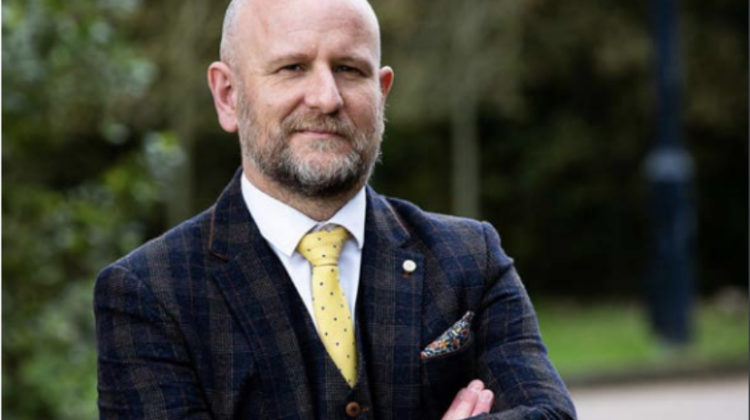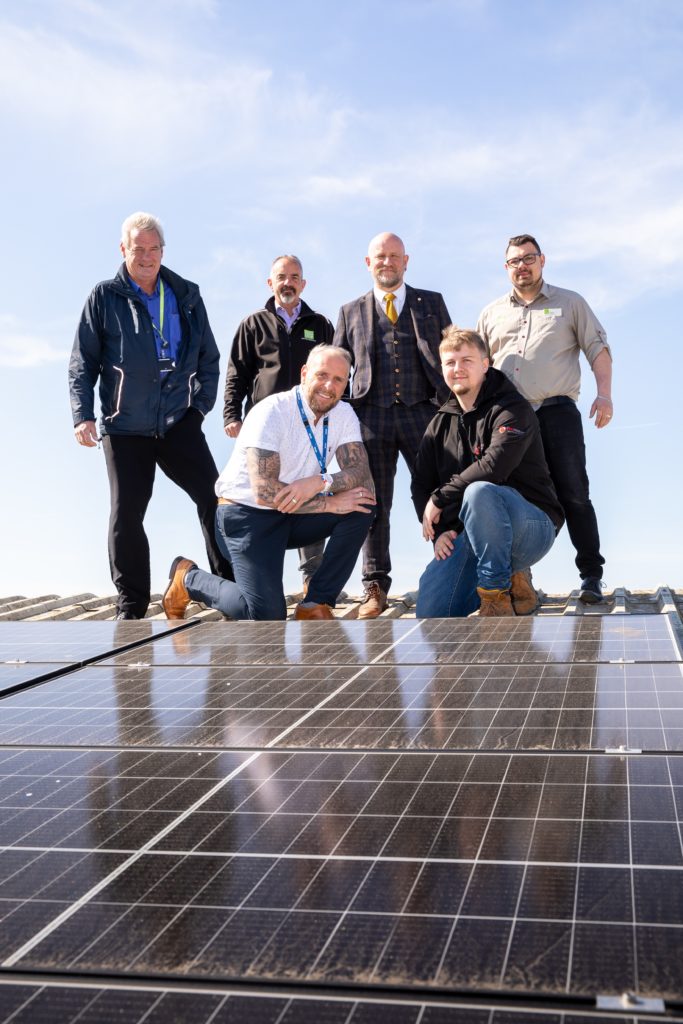
Steven Fendley is the Head of Sustainability at East of England Co-op, the largest independent retailer in East Anglia. Here, he explains how three of the supermarkets are now benefitting from zero-carbon electricity
How long have you been working for the East of England Co-op and what led you to become Head of Sustainability?
I’ve been working for the East of England Co-op for 14 years, managing environmental and building compliance. About five years ago, I took on responsibility for our Co-op’s energy procurement and carbon reduction strategies. Building on the great work that had already been done, we’ve been able to cut our Scope One and Two carbon emissions by over 50% since 2010.
Sustainable development and reducing our impact on the environment are important to me personally and professionally, so I was really pleased to be asked to lead our Co-op’s Sustainability Steering Group. The new Sustainability department was created to reflect the importance of sustainable development to our Co-op, and I was privileged to take on the role of Head of Sustainability, allowing me to focus on developing and delivering our strategy.
What does your role involve?
My role is very varied. Firstly, I look at the delivery of our Co-op’s ‘Sustainability Approach’, working with colleagues from across the business to make sure that sustainable thinking and action against our chosen Sustainable Development Goals remain integral in everything we do, as well as ensuring that our commitment to be carbon neutral by 2030 is achieved on or before that date. Alongside this, I champion sustainability internally with are colleagues and with external groups, speaking at local events and in schools.
A third part of my role is to manage our energy consumption and procurement, identifying where we can be more efficient, cutting energy use and carbon emissions.
Finally, I deliver renewable energy projects. Most recently we installed solar panels at three of our branches in Brightlingsea, Long Stratton and Acle.
What is the East of England Co-op’s approach to sustainability?
Being a co-operative means that sustainability is in our DNA. We believe being sustainable means looking at every part of our business and culture. It’s about being accountable for our impact on the planet and supporting our colleagues and communities to thrive.
Our strategy is a ‘living’ process, ensuring that it remains current and evolves alongside our Co-op and the wider needs of our planet. Our Sustainability Steering Group works together to design and implement ideas that have a positive impact on sustainability and provide social and environmental value within our local communities and across the globe.
We’ve identified six of the United Nation’s Sustainable Development Goals (SDGs) where we think we can have the greatest positive impact and have set ourselves ambitious targets for each of them.
We believe that we can make a significant difference in:
* Reducing hunger and ensuring access to good quality healthy food in our communities (SDG 2 – Zero Hunger)
* By providing access to education and information in our communities and for our colleagues, through awareness campaigns and training (SDG 4 – Quality Education)
* By being an inclusive organisation as diverse as our communities, dedicated to achieving gender equality (SDG 5 – Gender Equality)
* By promoting sustainable economic growth and employment, continuing to re-invest in our communities through local development projects and by supporting local businesses (SDG 8 – Decent Work and Economic Growth)
* By embracing technology, undertaking development projects across our business that will keep our buildings sustainable and contribute to our local area (SDG 9 – Industry, Innovation and Infrastructure)
* By reducing our carbon emissions and improving energy efficiency as top priorities (SDG 13 – Climate Change).

Is the zero-carbon energy supermarket in Brightlingsea something of a first?
We’ve installed solar panels at some our Food stores previously, but on a much smaller scale. Our Brightlingsea supermarket was the first large solar array installed working in partnership with Suffolk County Council. A 130.4Wp solar panel installation has been installed, which is expected to generate 122,000kWh of electricity a year. Any additional energy required from the grid comes from green sources. However, since installation, the supermarket has been able to run powered entirely by the on-site solar several times, which for a site that size is amazing.
Working with Suffolk County Council we’ve been able to install solar panels at a further two supermarkets in Acle and Long Stratton. We expect that, in total, the three sites will generate around 220,000kWhs of energy each year and save around 45 tonnes of CO2e emissions each year.
How has Suffolk County Council helped?
Suffolk County Council provided the funding for the supply and installation of the solar panels through their Renewable Energy Fund. They install, own and operate the panels on our roofs, and we purchase the green energy produced by the panels. This allows us to significantly reduce our costs and use of grid electricity, as well as reducing our CO2e emissions.
Where’s next? And what is the long-term goal?
We hope to work with Suffolk County Council to install solar panels at more of our supermarkets and are currently looking at the feasibility of a number of branches. We’re also looking to self-fund the development of solar generation for other sites to provide more green energy for use in our branches.
We’ve committed to increasing annual on-site renewable energy generation to at least 370,000kWh (1% of our current electricity need) by 2025 and to 5% of our annual consumption by 2030. This will support us on our journey to becoming a carbon neutral business by 2030.
Any more sustainability initiatives that you can share?
We’re installing Electric Vehicle (EV) charging points at our Food stores in partnership with charger operators Plug N Go. We currently have public EV chargers at 12 of our branches, having just added five new sites. We plan to install chargers at a further 10 sites this year and have committed to having 40 sites operational by 2025.
We’re also continuing to replace lighting across our business with more efficient LED equivalents, as well as fitting motion sensors, ensuring lights are not left on unnecessarily.
Steven Fendley GradIOSH DipNEBOSH PIEMA, is Head of Sustainability at East of England Co-op. For more information about its approach to sustainability, visit www.eastofengland.coop.









Leave a Reply